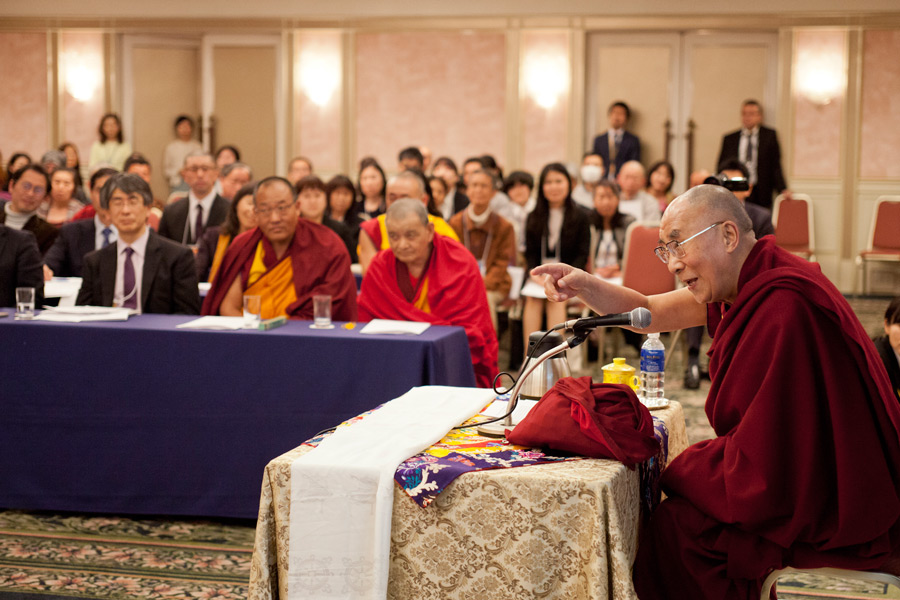
(TibetanReview.net, Apr06, 2015) – Continuing his trip in Japan, Tibet’s exiled spiritual leader, the Dalai Lama, on Apr 5 attended a conference in Tokyo on Buddhist studies which was organised by the Drepung Gomang Academy of Japan. Some 150 people attended the conference, at which papers on a range of fields in Tibetan studies in Japan were presented.
After an opening remark by Yasahiro Nagano, President of the Japan Association of Tibetan Studies, Yoichi Fukuda presented a survey on the ‘Past and Future of Tibetan Studies in Japan’. Akira Saito followed him with a presentation on ‘Madhyamaka Studies in Present-day Japan and Abroad’. He had been working on Indian Madhyamaka philosophy for the past 30 years.
Presenting his paper on ‘Studies of Buddhist Logic in Japan’, Shoryu Katsura explained that unlike Tibet, with its extensive array of texts on logic and reason, only four texts translated into Chinese by Xuanzang had reached Japan.
Tsuguhito Takeuchi presented a linguistic paper on ‘Universal Nature of Tibetan Civilization – a view from Old Tibetan Textual Study’.
Lee Collins, one of the founders of Unicode, explained how Unicode had become the basis of digital text. It enables scholars to search and establish context. He quoted lines from an introduction to the Heart Sutra as a source of inspiration and from the Buddha’s remark: “I teach the Dharma in the language of all beings human and non-human.”
Presenting a paper on ‘New Trends in Tibetan Studies in Japan’, Kazushi Iwao said Japanese research in Tibetan studies dated back to 1812. He identified 10 Japanese who had made it to Tibet and experienced life and studied there before the Chinese invasion. He expressed regret that although the Japan Association of Tibetan Studies started in 1954, making it the oldest such body in the world, Tibetan studies were still not a separate academic field in Japan.
Hiroshi Nemoto quoted extensively from Je Tsongkhapa’s ‘In Praise of Dependent Origination’ in his paper on ‘Logic, Practice and Poetry in Tibetan Buddhism’.
In his concluding remarks the Dalai Lama expressed appreciation and admiration for the work that had been presented. He said what he had heard were wonderful and very interesting. He thanked the scholars on behalf of the six million Tibetans. “I’m a student, a student of the Nalanda tradition, and when I listen to these new things you have to tell us, it makes me feel young,” he said.
Earlier in the day, the Dalai Lama consecrated the newly relocated Liaison Office of his Representative for East-Asia, met with a group of 120 Tibetan students, and gave an interview to the Sapio magazine.


